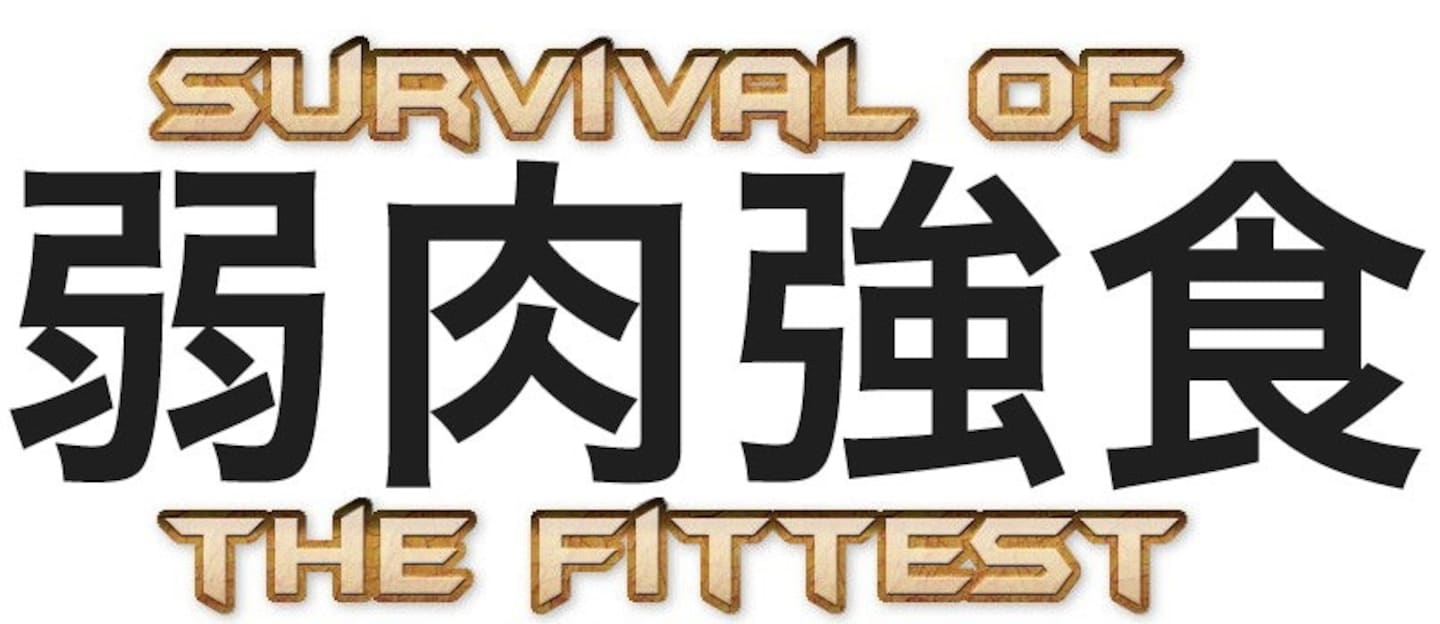Want to Wow Your Japanese Friends?
With enough hard work, anyone can learn to speak and read Japanese. But you know you’ve truly made it as a master only when you can effortlessly break out a few yoji-jukugo, or four-kanji idioms, so as a special treat, we have pulled out five of the most common four-character idiomatic phrases.
By SoraNews246. Two Birds with One Stone
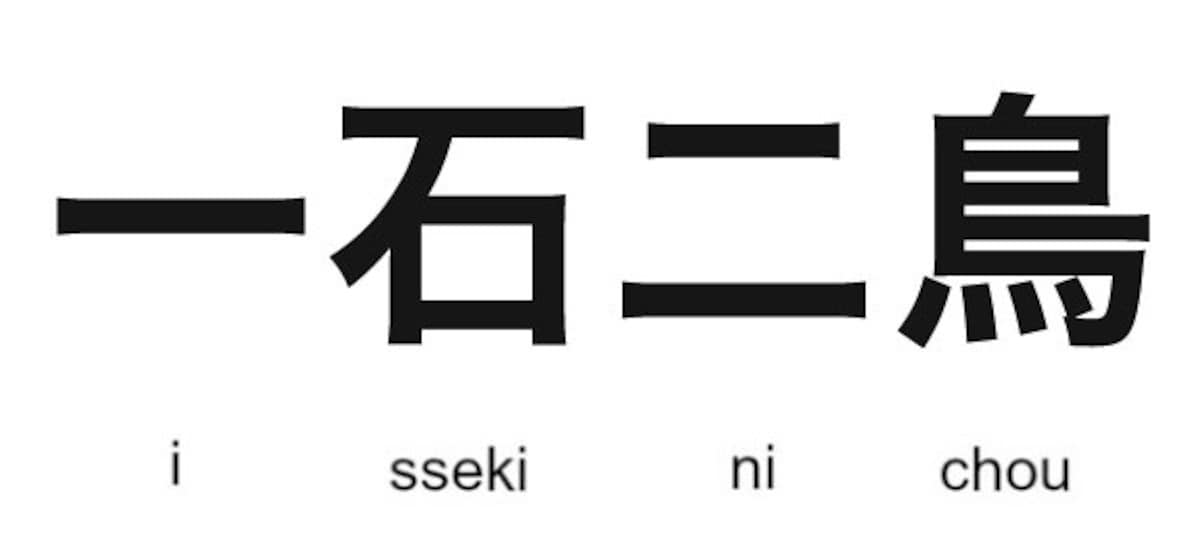
http://en.rocketnews24.com/2015/11/14/10-badass-four-character-phrases-to-add-to-your-japanese-language-toolkit/
Most of our readers will be familiar with isseki-nichou in its English form since the phrase literally translates as “one stone two birds.” Unlike the English idiom “to kill two birds with one stone,” however, the Japanese version lacks a verb, thus leaving the murdering of said winged creatures entirely up to the speaker’s discretion.
Kanji Breakdown: i 一 (one), seki 石 (stone/rock), ni 二 (two), chou 鳥 (bird)
5. Love is Blind
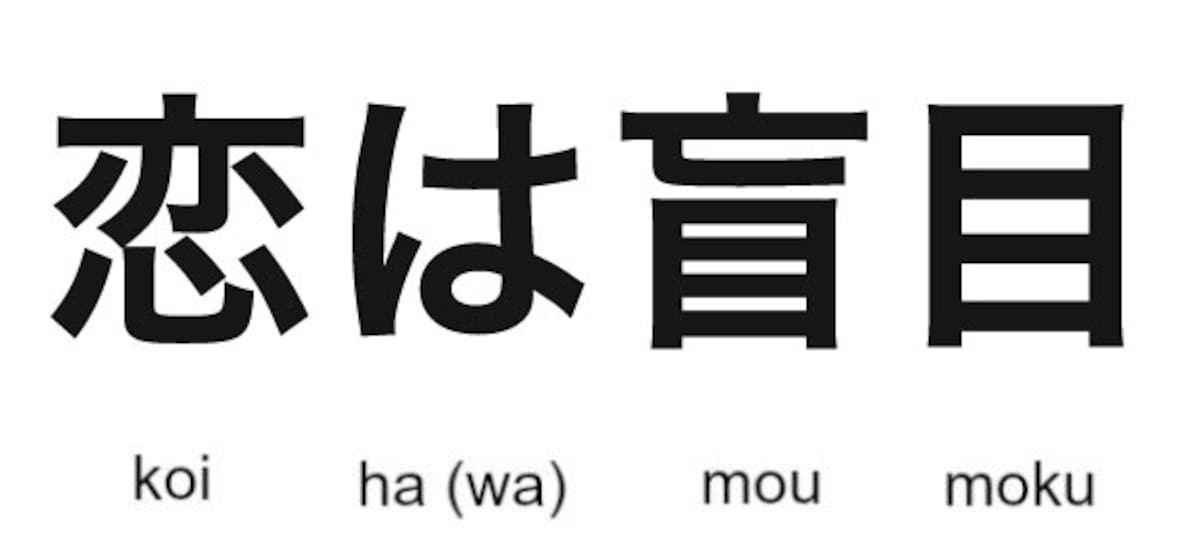
http://en.rocketnews24.com/2015/11/14/10-badass-four-character-phrases-to-add-to-your-japanese-language-toolkit/
Proof that yoji-jukugo don’t have to be made up entirely of kanji, the Japanese idiom for “love is blind” includes the hiragana character ha, but pronounced wa. No, it doesn’t look like the majority of yoji-jukugo, but it's still pretty cool.
Kanji Breakdown: koi 恋 (love), ha は (particle denoting subject), mou 盲 (blindness), moku 目 (eye/look)
4. One-Time Chance
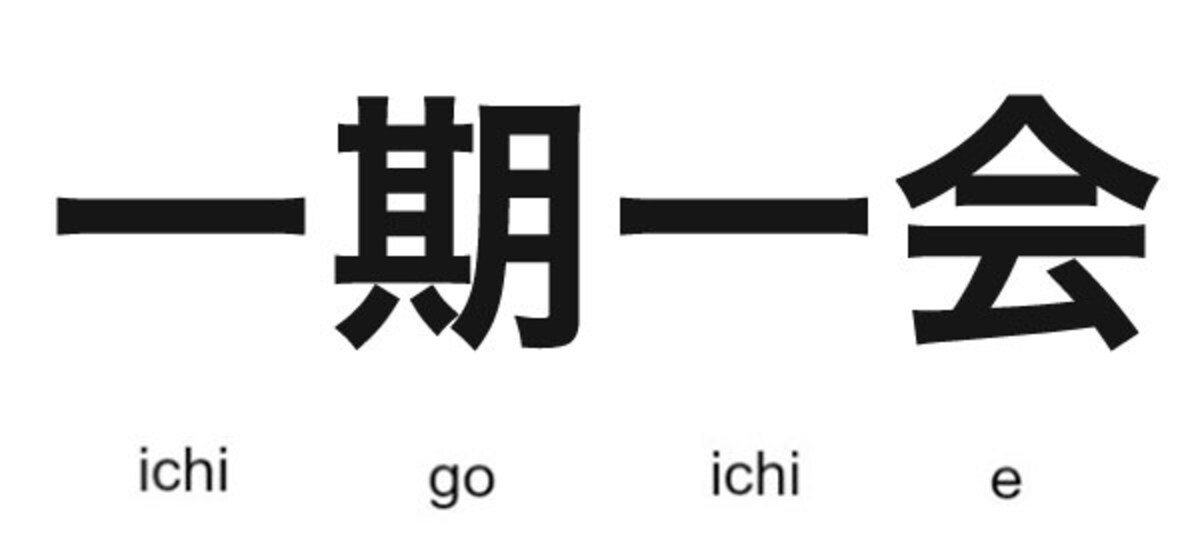
http://en.rocketnews24.com/2015/11/14/10-badass-four-character-phrases-to-add-to-your-japanese-language-toolkit/
Featuring an rather unusual reading of the characterki (期), this is one to use when you’re inviting someone back to your apartment after a few drinks. Don’t miss this “once-in-a-lifetime opportunity”!
Kanji Breakdown: ichi 一 (one), go 期 (period/time), ichi 一 (one), e 会 (meeting)
3. Survival of the Fittest
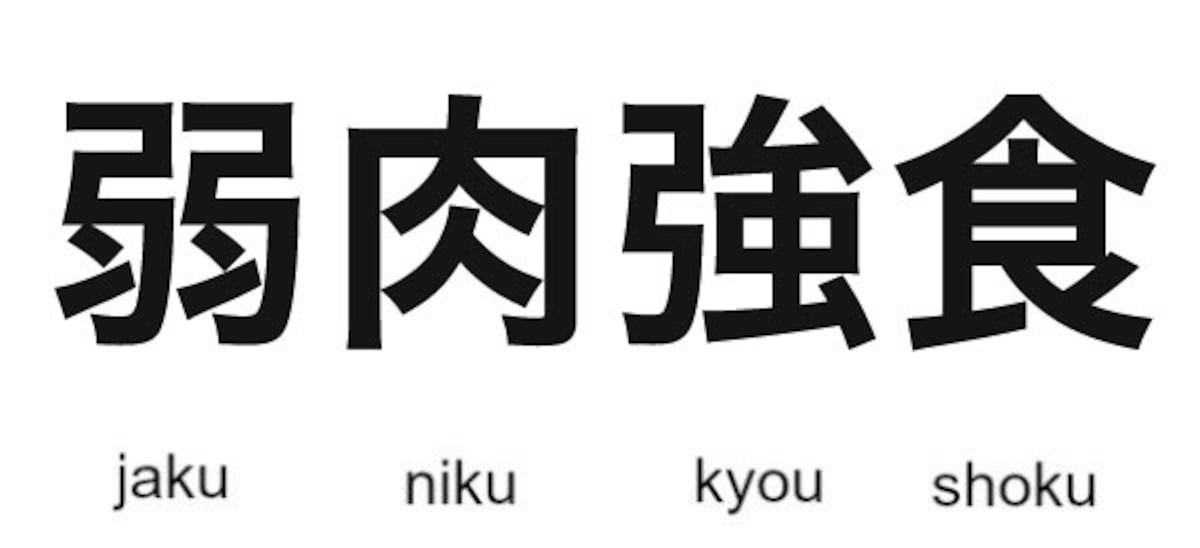
http://en.rocketnews24.com/2015/11/14/10-badass-four-character-phrases-to-add-to-your-japanese-language-toolkit/
Keeping the yin-yang balance now, it’s jakuniku kyoushoku, or “weak meat strong food.” Confused? Well then you’d better study up before someone better comes along, because this idiom is Japan’s own version of the phrase “survival of the fittest” or “dog eat dog,” wherein the weaker becomes the stronger’s dinner.
Kanji Breakdown: jaku 弱 (weak), niku 肉 (meat), kyou 強 (strong). shoku 食 (food/meal)
2. Immediately Obvious
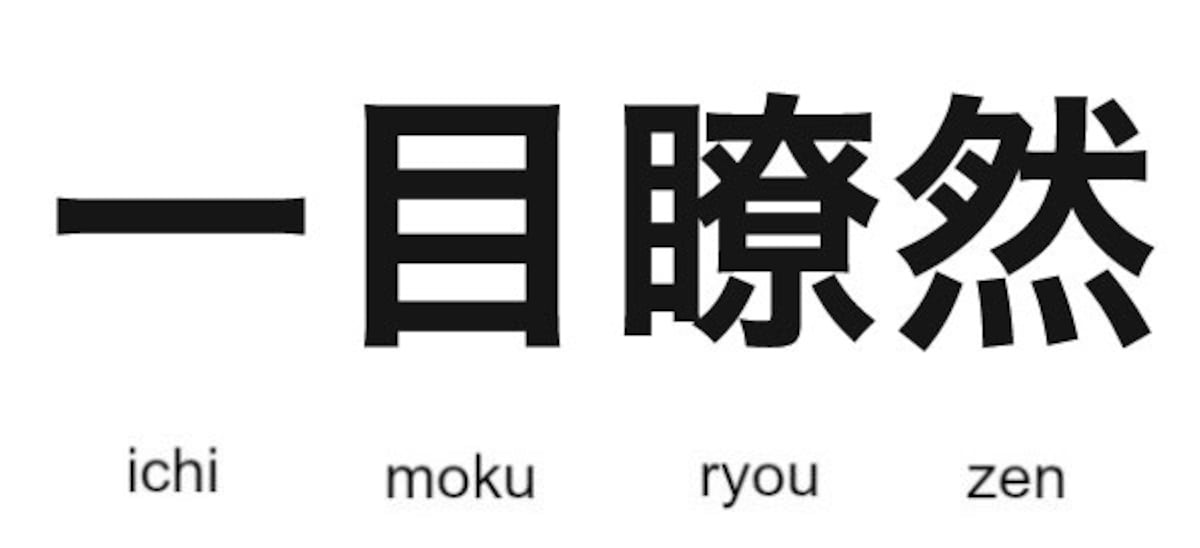
The third and fourth kanji characters here may look rather imposing for beginner-level Japanese learners, but the first two, ichi (one) and moku (eye), should be familiar. In fact, the meaning of those first two characters should be immediately clear to anyone who has spent even a couple of weeks studying kanji, if you follow my meaning?
Kanji Breakdown: ichi 一 (one) moku 目 (eye/look), ryouzen 瞭然 (obvious)
1. Food is Medicine
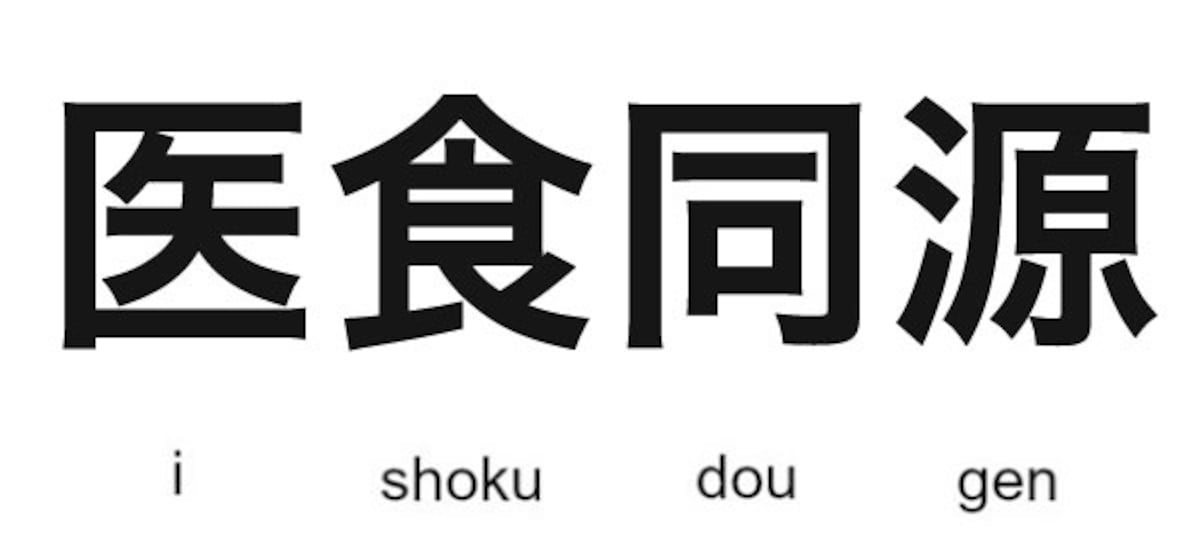
http://en.rocketnews24.com/2015/11/14/10-badass-four-character-phrases-to-add-to-your-japanese-language-toolkit/
Ishoku-dougen can be translated as “medicine and diet are of equal importance”, but we prefer to think that plenty of good food will remove the necessity for medicine entirely, so we’re repackaging this one as “good food is in itself medicine.”
Kanji Breakdown: i 医 (medicine). shoku 食 (food/meal), dougen 同源 (the same origin)
Hungry for more yojijukugo? Click on the link below for more interesting four-character Japanese idioms.


